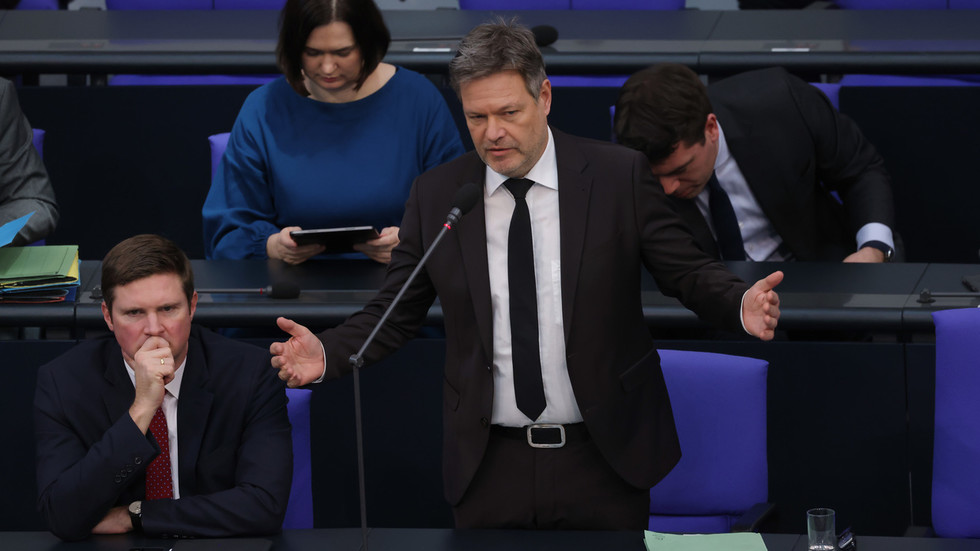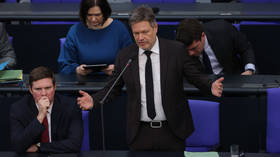
The country is now in a “particularly” difficult situation, Vice-Chancellor Robert Habeck has warned

German Economy and Climate Action Minister as well as Vice Chancellor Robert Habeck responds to the queries of parliamentarians during a question and answer session at the Bundestag on January 17, 2024 in Berlin, Germany. © Sean Gallup/Getty Images
The German economy has lost its competitive advantage after abandoning Russian gas supplies, Vice-Chancellor and Economy Minister Robert Habeck stated on Wednesday.
The EU’s top economy benefited from cheap Russian energy for over two decades. It relied on the sanctioned country for 40% of its gas imports before 2022 and was among the hardest hit by the supply reduction.
“Germany is indeed in a particularly difficult situation. Unlike other countries with which we compete, Germany’s energy supply was largely built on dependence on Russian gas. This has given us a competitive advantage in the past; it has been very profitable,” the vice chancellor said at the Bundestag meeting.
Berlin reduced its dependence on Russian energy in 2022 by importing LNG through European neighbors and boosting pipeline gas flows from Norway and the Netherlands. But the country is still far from entirely substituting Russian pipeline gas supplies with LNG, estimates show.
READ MORE: Russian economy on ‘sustainable growth trajectory’ – Mishustin
“After it [Russian gas] was gone, we lost our competitive advantage because energy prices in Germany became higher,” Habeck added.
A prolonged energy crisis resulting from a gas supply shortfall has significantly impacted German manufacturing. The surge in raw materials and energy prices has taken a toll on most of the country’s industries.
In addition, an “extreme boom in exports” from which the German economy has always benefited enormously in the past has failed in recent years, according to Habeck.
For more stories on economy & finance visit RT’s business section




